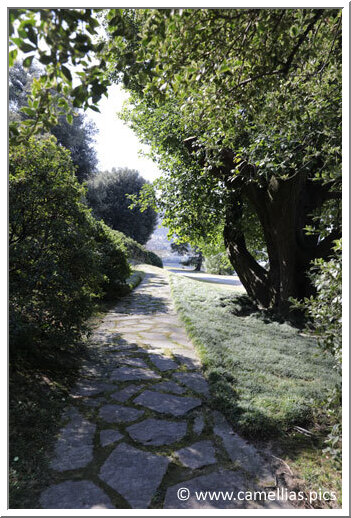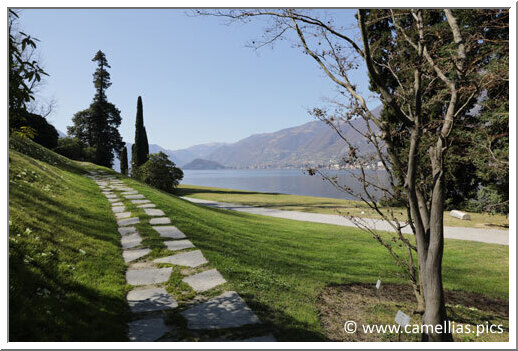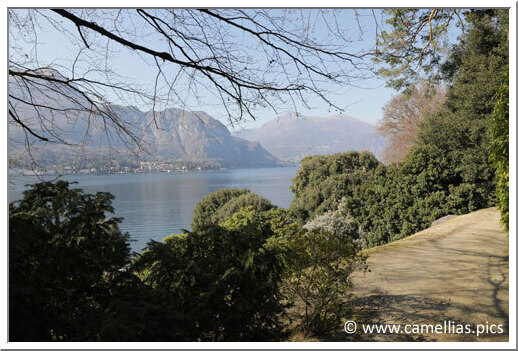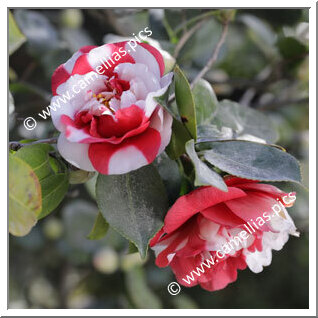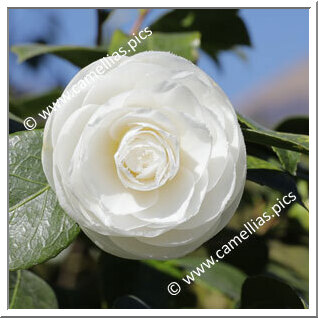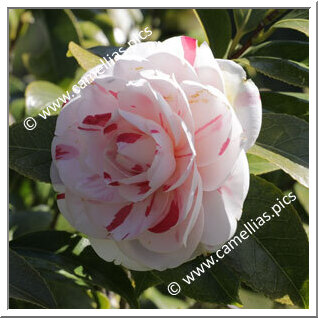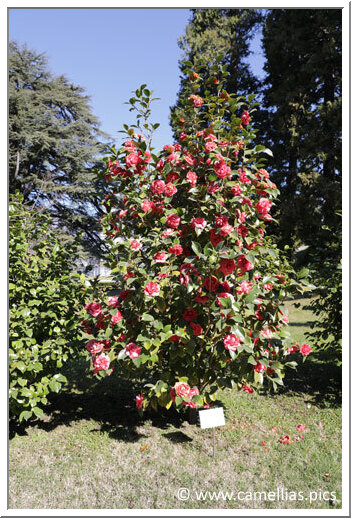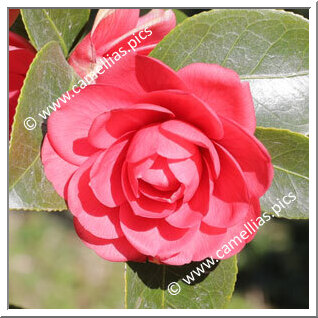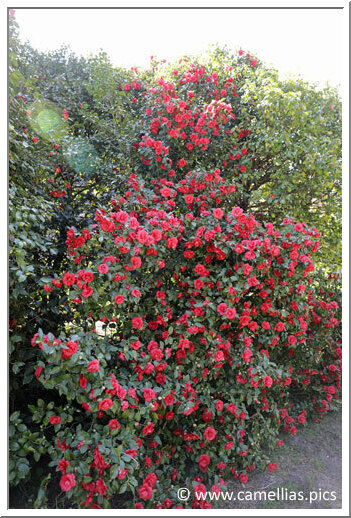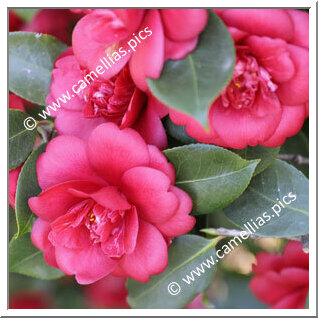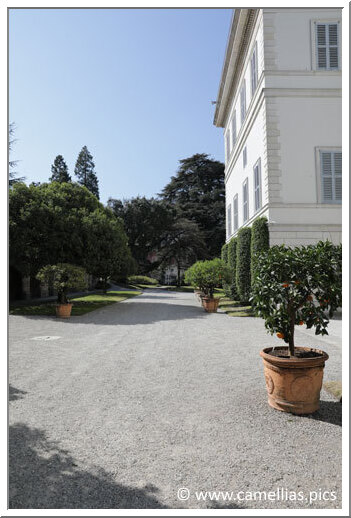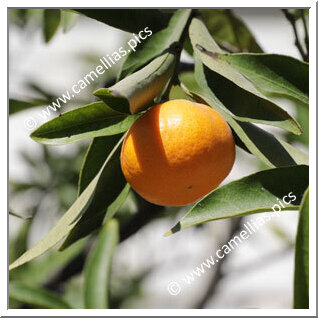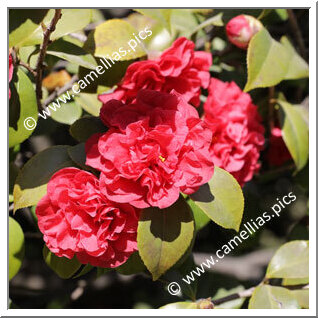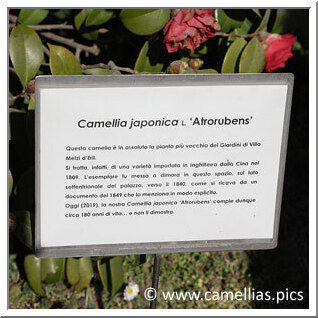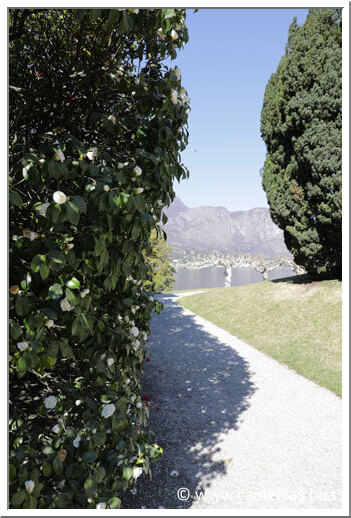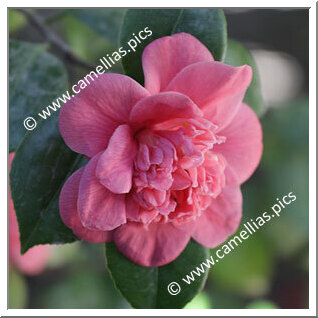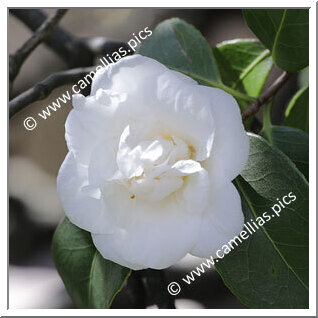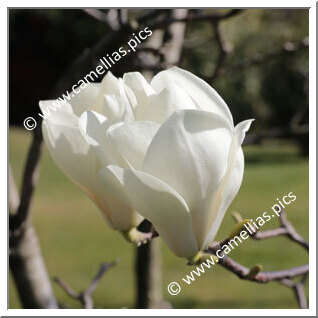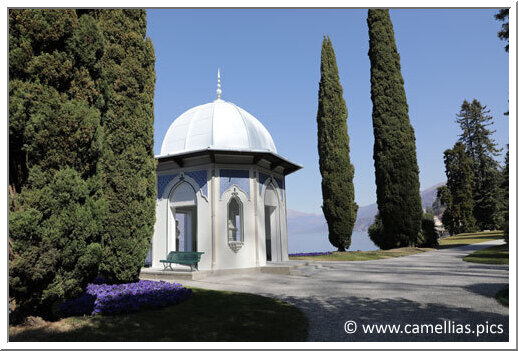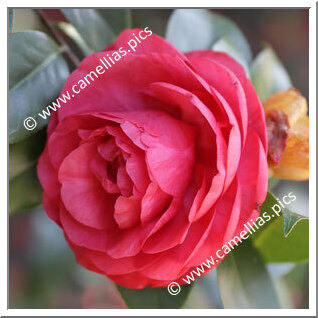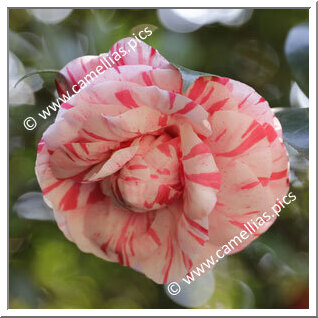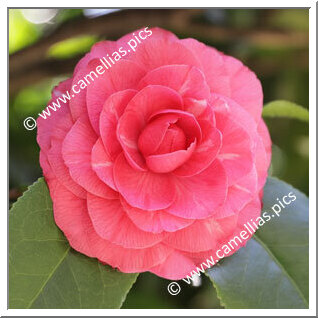We are going to discover Lake Como, with a visit to Bellagio (CO), in the gardens of Villa Melzi d'Eril. It was built between 1808 and 1810 for Francesco Melzi d'Eril, Duke of Lodi. The design of the Villa and the gardens was entrusted to Giocondo Albertolli. Today the property has a collection of 250 camellias, divided into sectors, which we will visit one after the other. The interest of the collection lies in the old Italian camellias obtained in the 19th century, which are rare. Villa Melzi d'Eril is also a botanical and artistic garden, as evidenced by the many pieces of art that we can admire during the visit. In season, the Villa is open to the public every day from 10am to 7pm and is closed in winter.
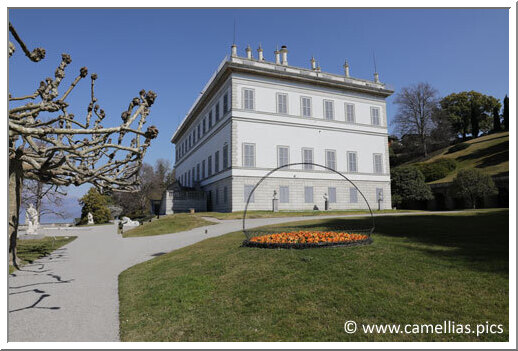
The access is through the di Loppia entrance. The visit begins with a first sector of camellias. We can find camellias like 'Bonomiana', among others.
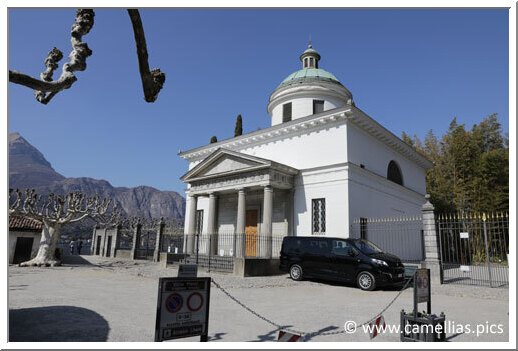
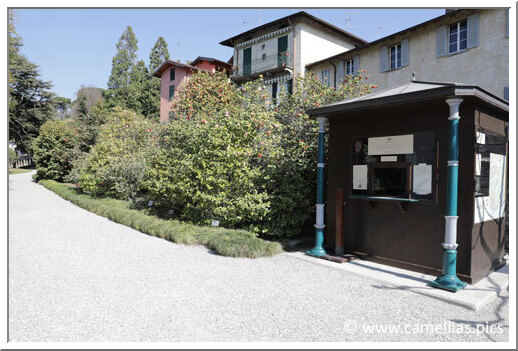
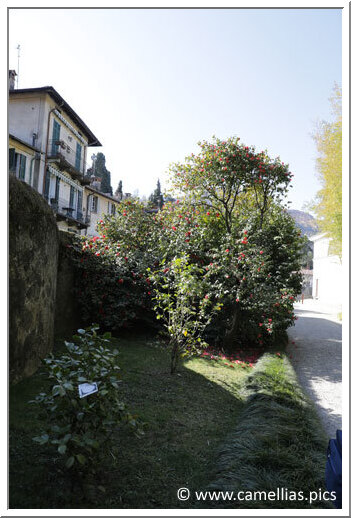
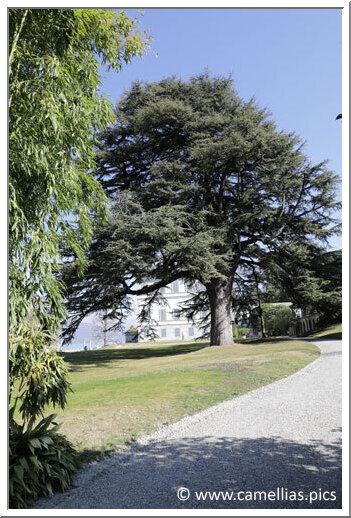
Continuing the main path and before reaching the Villa, we discover the second sector: the camellias of Rovelli. This is a collection of camellias from Lake Maggiore composed from the breedings of the Rovelli family, in Pallanza (VB). It was purchased in 2010 and planted in 2013.
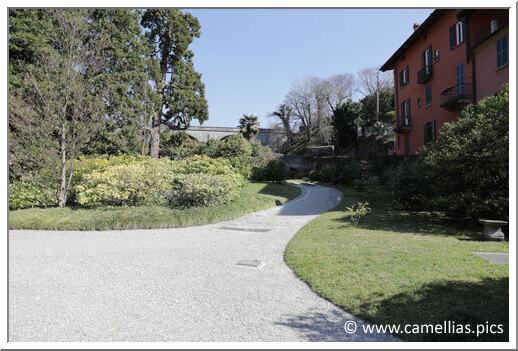
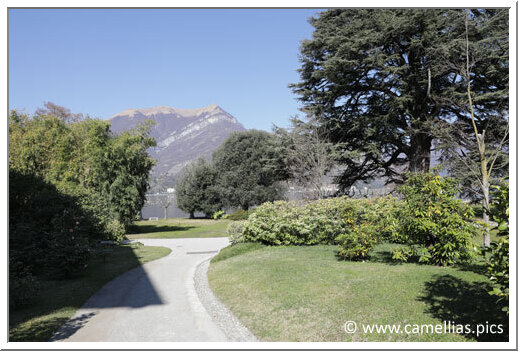
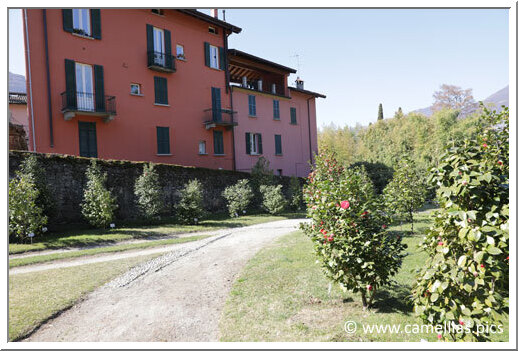
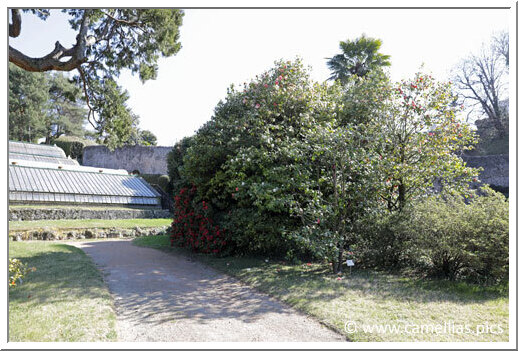
We continue the visit of the park and reach the Villa and the third sector, with the historical camellias.
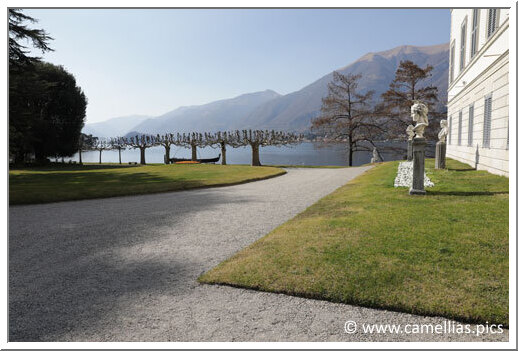
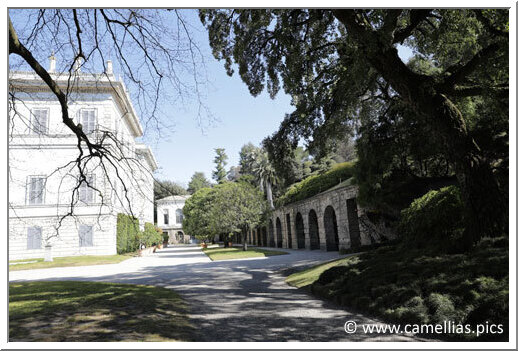
At the back of the Villa, citrus trees are planted in pots, on the right a Citrus reticulata Blanco Mandarino, whose fruit is the mandarin.
We arrive at the historical camellia area on the north side of the Villa. We take a little height to give you the scale.
These are the first camellias in the collection of Villa Melzi d'Eril.
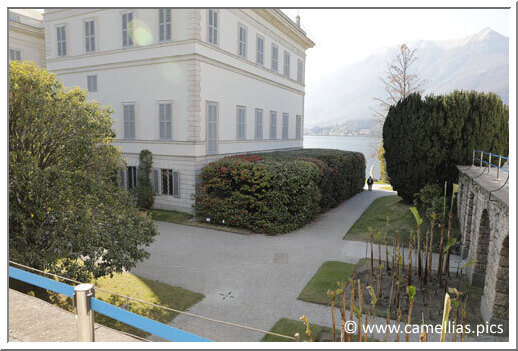
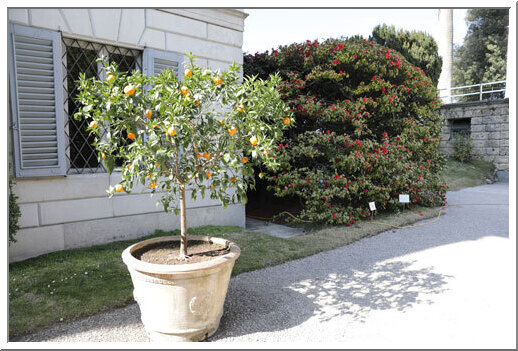
'Atrorubens', in the background on the right, is the very first to have been planted. It was purchased in 1840.
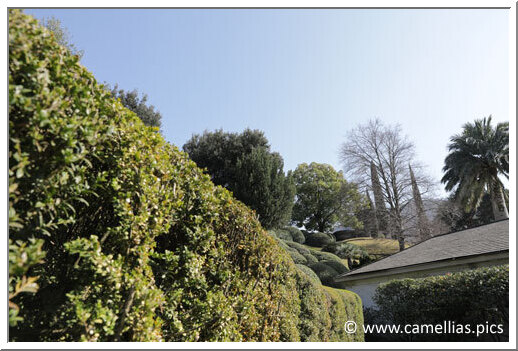
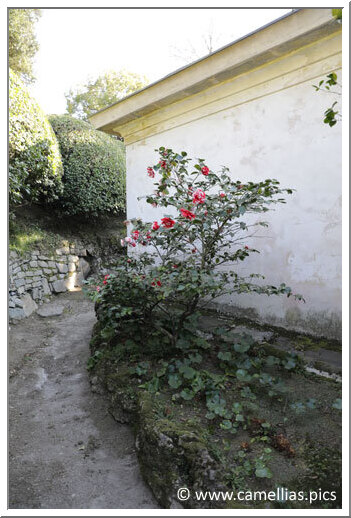
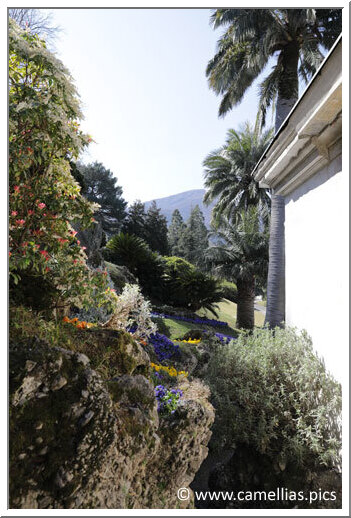
We continue to discover the park and the view on the Lake of Como. There is a sector of camellias to discover. In the meantime, we have plenty of time to wander through the botanical park.
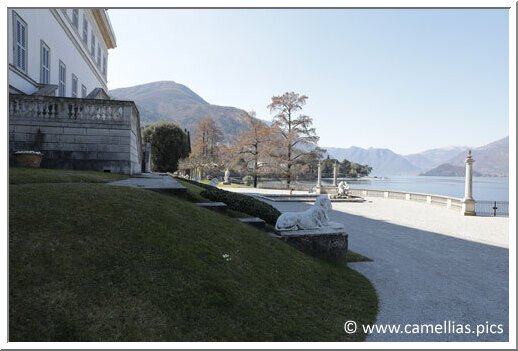
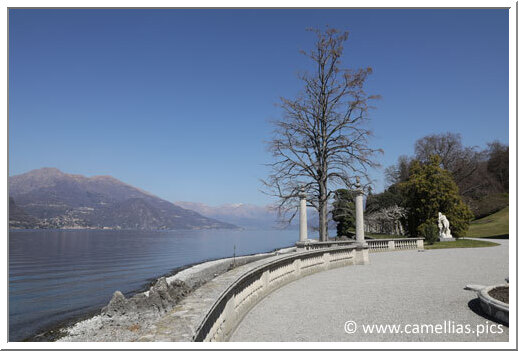
Above is the Magnolia Yulan, dedicated to the memory of Natale Gandola. He was the head gardener of Villa Melzi d'Eril from 1960 to 2019 and was known to all as "Nino".
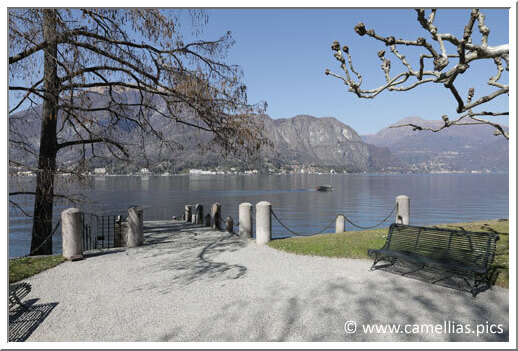
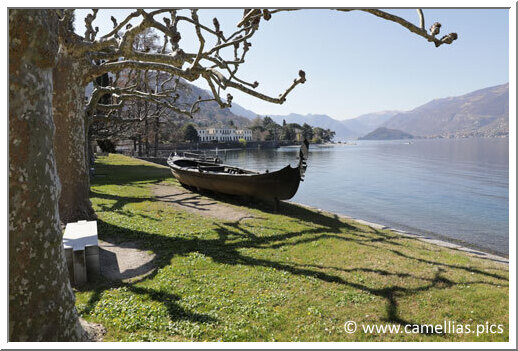
Above is a gondolona, which was used for transportation on the lake. It is very different from the ones you can find on the canals in Venice.
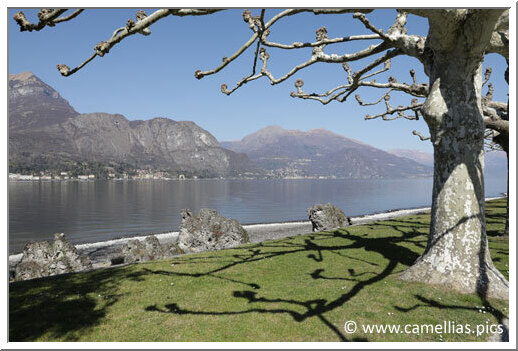
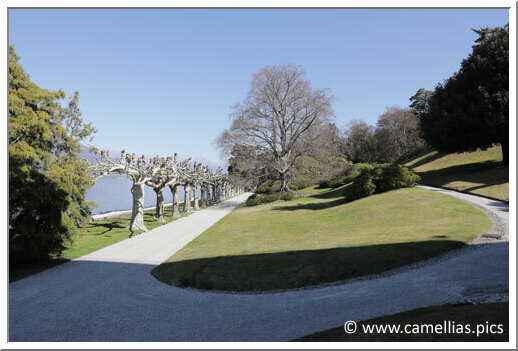
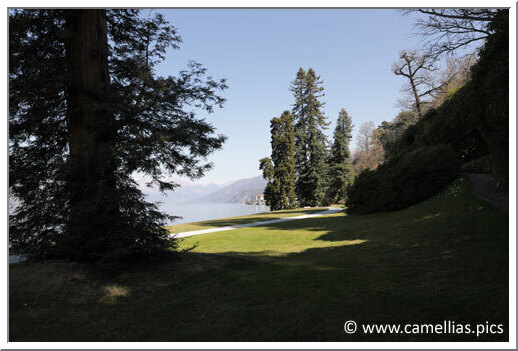
The large tree that stands out in the center of the photo is a Pinus devoniana, a Mexican Fir.
We arrive at the last camellia sector, the Boscetto delle Camelie. It is a small wood of camellias probably planted at the end of the 19th century or at the very beginning of the 20th.
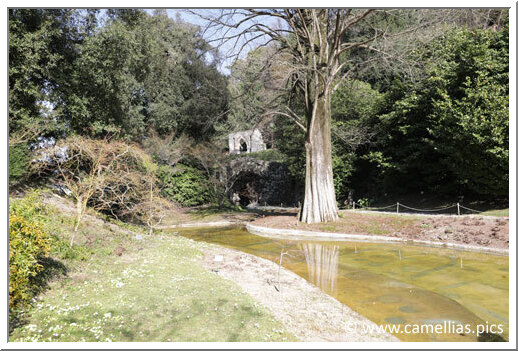
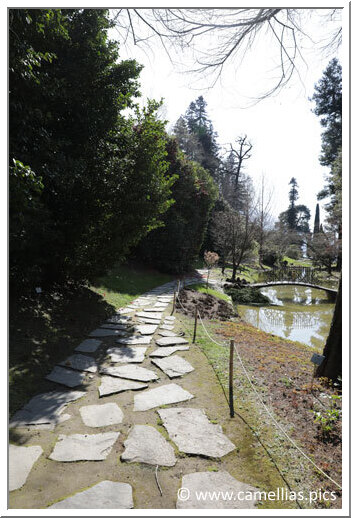
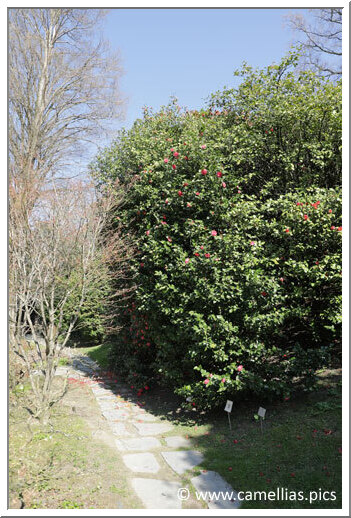
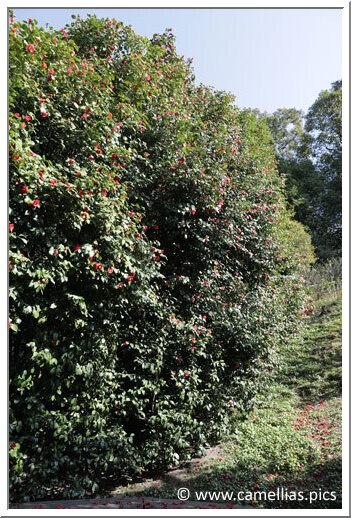
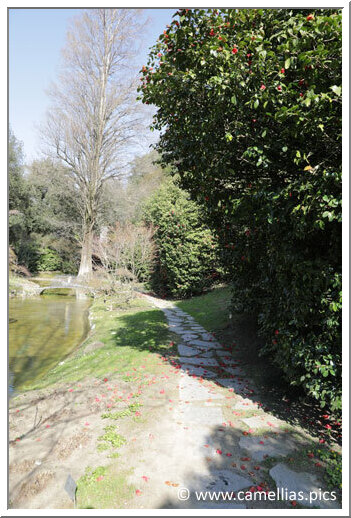
The visit comes to an end, we leave the Buschetto to cross the park towards the exit, with the view on the lake of Como.
